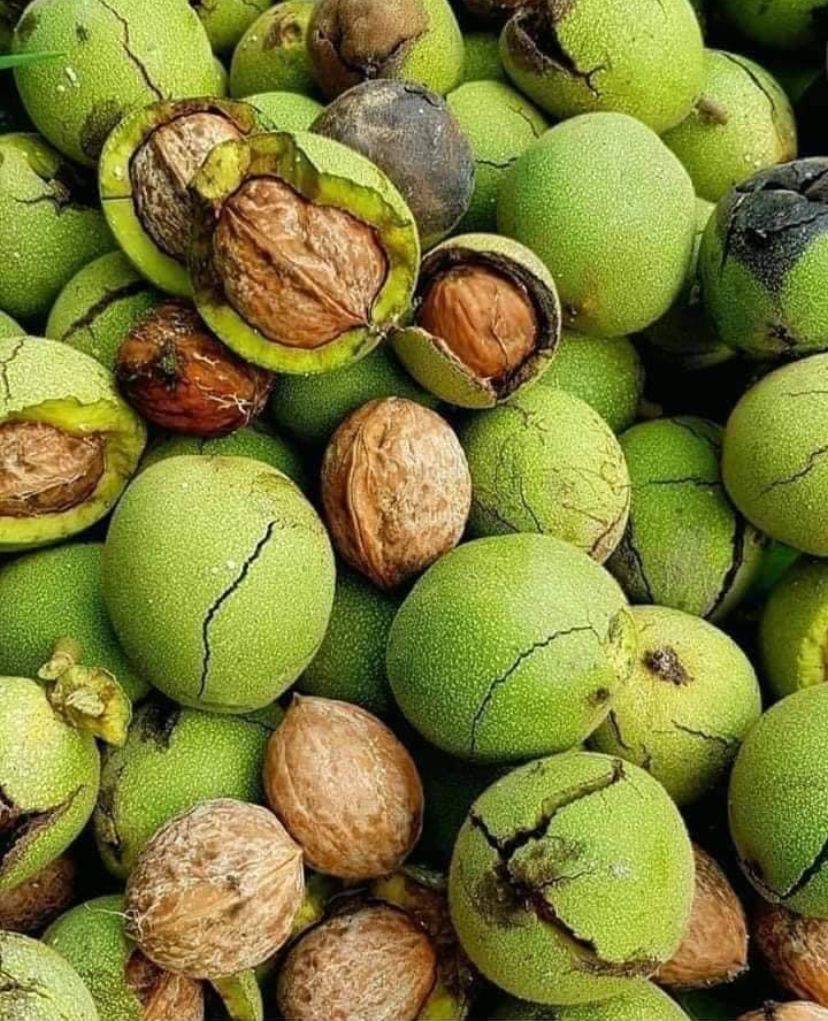Understanding the walnut harvest season: Key practices, regions, and market trends in Kurd
Kurdistan produces the highest annual yield of walnuts and is known for producing some of the best walnuts. There are multiple types of walnuts, which ripen every year in September and October. Some varieties, which are predominantly used within Kurdistan, have black kernels, while others feature white kernels.
Walnuts are grown in many parts of Kurdistan, particularly in the cooler regions such as Haji Omaran, Hawraman, Shaqlawa, and the mountainous border regions of Duhok. The walnut tree, a unique fruit-bearing species, thrives in these chilly climates. The quality and characteristics of the walnuts can vary depending on the growing location and the specific tree. To harvest the walnuts, skilled workers known as “Shaniyar” are employed. They use long poles to pluck walnuts from branches, a task that requires significant skill and precision, as some walnuts grow on thin branches that cannot support an individual’s weight. The harvesters must strike the walnuts with care to avoid breaking the branches.
After being shaken from the trees, the walnuts still have green husks and need to be cleaned. They are then laid out in the sun to dry for two days. Premium walnuts, which have white kernels, fetch a higher price; thus, experts select and separate the best ones. Nowadays, bakers often crush black-kernel walnuts before using them in baklava and cookies. Although this black-kernel variety is commonly used in confections, it is less frequently consumed raw.
Hawraman is home to approximately 85,000 walnut trees. The exact amount of walnuts produced annually in Kurdistan is unknown because some are mixed with local goods and come from regions such as Eastern Hawraman or the Damavand area in the east. However, due to high local demand and limited production, most walnuts are consumed domestically.
Kurdistan is currently expanding walnut cultivation, working to improve walnut varieties, and implementing scientific monitoring. As a result, walnut production is expected to rise. Some walnut trees are being cross-pollinated with different international walnut varieties to observe the outcomes.

